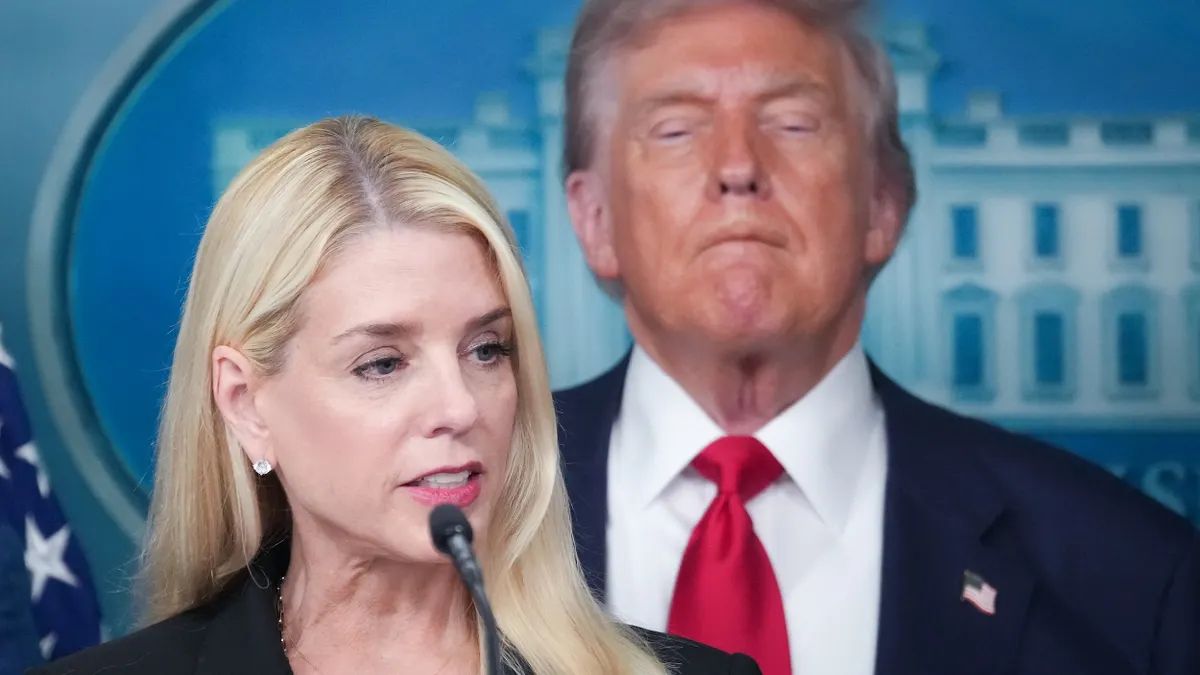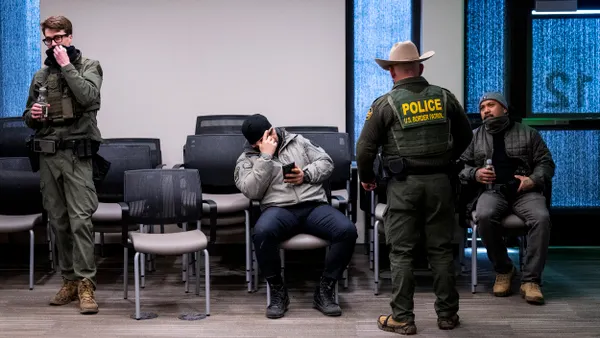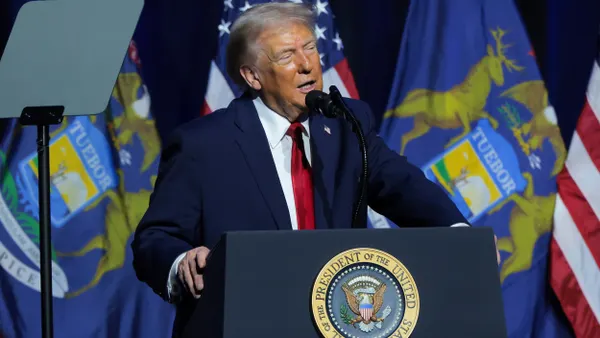Dive Brief:
-
Officials in 19 cities, 4 counties and 12 states identified as engaging in “sanctuary policies and practices” have until tomorrow, August 19, to respond to an August 5 letter from U.S. Attorney General Pam Bondi demanding they identify immediate initiatives they’re taking to “eliminate laws, policies, and practices that impede federal immigration enforcement.”
- Bondi also warned the jurisdictions could have federal funding revoked and that individuals “using their official position to obstruct federal immigration enforcement efforts and facilitating or inducing illegal immigration may be subject to criminal charges."
-
Officials from Illinois, Washington and Connecticut have publicly pushed back. In a press call Thursday, Baltimore Mayor Brandon Scott said the city was “prepared to take any legal and any other action that we need to take,” adding, “I know my brother and sister mayors around the country feel the same way.”
Dive Insight:
President Donald Trump signed an executive order on April 28 directing the attorney general and the Department of Homeland Security to publish a list of states and local jurisdictions that “obstruct the enforcement of Federal immigration laws,” pursue legal remedies to bring them into compliance and identify federal grants and contracts to these cities that could be suspended or terminated.”
That list of more than 500 cities, counties and states, published May 30, was immediately taken down after city leaders and law enforcement complained it was created without criteria for compliance or any mechanism for the jurisdictions on the list to object to the designation.
The Justice Department published an amended list of cities, counties and states it defined as sanctuary jurisdictions on August 5, listing nine criteria including public declarations, laws and ordinances; limited sharing of information about the immigration status of detainees; and non-cooperation with federal immigration enforcement.
“This initial list of designated Sanctuary Jurisdictions will be reviewed regularly, to include additional jurisdictions and remove jurisdictions that have remediated their policies, practices, and laws,” the DOJ states. “Each state, county, and city will have an opportunity to respond to its placement on the list.”
Based on this list, Bondi sent letters to leadership of the states of California, Colorado, Connecticut, Delaware, Illinois, Minnesota, New York, Oregon, Rhode Island, Vermont, and Washington; the cities of Albuquerque, Berkeley, Boston, Chicago, Denver, East Lansing, Hoboken, Jersey City, Los Angeles, New Orleans, New York, Newark, Paterson, Philadelphia, Portland, Rochester, Seattle, and San Francisco; Cook County, Illinois; San Diego County, California; and San Francisco County, California.
Washington Gov. Bob Ferguson said in a Facebook post that the state “has no intention of changing our values in the face of threats from the Trump administration. ... The Keep Washington Working Act requires our state and local law enforcement to focus on keeping Washingtonians safe, rather than allowing limited resources to be used for federal immigration enforcement.”
Connecticut Attorney General William Tong issued a statement saying the state has been falsely labeled as a sanctuary jurisdiction. “There is nothing in our laws or statutes that says Connecticut is a ‘sanctuary’ state. We are not,” he said. “That is a term with no legal meaning, and the ‘characteristics’ listed here are a concocted fiction of the Trump Administration.”
Tong said Connecticut “sued the last time Trump attempted to defund our law enforcement, and we are prepared to defend Connecticut funding and public safety.”
Democratic congressional delegates from Illinois urged the administration “to respect the autonomy of these state and local laws rather than renew failed, retaliatory lawsuits and policies” in an August 7 letter to Bondi, Homeland Security Secretary Kristi Noem and Acting U.S. Immigration and Customs Enforcement Director Todd Lyon.
Following the administration’s decision to deploy National Guard troops in Washington, D.C., last week, Bondi said the city’s “sanctuary policies no longer apply.” She also announced that Louisville, Kentucky, Mayor Craig Greenberg agreed to end policies that placed the city on the Justice Department’s sanctuary city list. He feared the prospect of National Guard troops on the streets of Louisville, he told the New York Post.
“This should set an example to other cities,” Bondi wrote on X. “Instead of forcing us to sue you — which we will, without hesitation — follow the law, get rid of sanctuary policies, and work with us to fix the illegal immigration crisis.”











